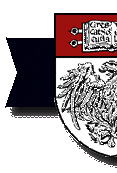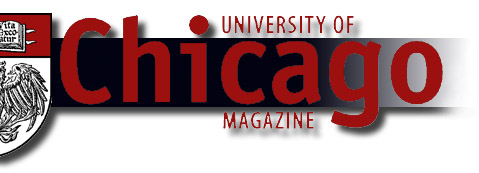|

Public policy
comes of age at Chicago
By far the
newest of Chicago's array of professional schools, the Irving B.
Harris Graduate School of Public Policy Studies is one of about
two dozen public-policy programs in the nation. Established in 1988,
the school grew out of the 12-year-old Committee on Public Policy
Studies and now has nearly 1,000 alumni. Program offerings include
a two-year master of public-policy degree and a Ph.D. in public-policy
studies, as well as combined degree programs with other professional
schools, the College, and the graduate divisions. This past fall,
the school received a $5 million gift from U of C life trustee Irving
Harris to establish the Center for Human Potential and Public Policy.
Economist
Robert T. Michael, the Eliakim Hastings Moore distinguished service
professor and the Harris School's first dean, returned to the deanship
in spring 1998. The Magazine asked him to talk about where the school
has been, as well as where it's going.
How has
the school grown since its inception?
The school
has found its niche. We're not all we hope to be—we're not as large
or influential or as successful as we intend—but we have confidence
about where we are and where we're headed. We started with ten people
on the faculty and four full-time equivalents. We now have 22 faculty
and 15 full-time equivalents, and we have a lot of joint appointments
with other parts of the University. We had 30 master's students
coming in every year; we now have about 80. We currently have 25
students in the Ph.D. program, and we have 22 Ph.D. alumni.
What goes
into a public-policy studies curriculum?
I like thinking
we've played a leadership role in defining the content of such a
curriculum. Our contribution has been to elevate the technical sophistication
of the training. We've had a relatively more rigorous economic-theory
component, and other schools have adopted that emphasis. We have
more—and more demanding—statistics courses, and again, others have
joined us in thinking that is what the profession ought to have.
We now have
to do an increasingly aggressive job in teaching public management
and policy implementation, so that students not only know the theory
underlying how to assess a policy, but also how to organize the
policy, to interact with others on a team, and to put regulations
into play.
We are training
men and women to implement policy, not to be academics. We've added
a capstone course for every master's student, where you take the
theory, you take the principles and tools, and you practice putting
together policy implementation plans. We also have a mentor program,
a summer intern program, and community programs, so students can
get hands-on experience.
Why get
a degree in public-policy studies?
Students come
to policy school because they want to make a difference. They don't
want to hear war stories; they don't want to hear arcane theories.
They want concepts and theories that will improve their ability
to make a wise judgment and to influence others with the salience
and the power of their arguments.
Our aspiration
is to continue to improve the curriculum so that the reputation
of our graduates will be enhanced, and the influence they have in
government, private industry, and nongovernmental organizations
(NGOs) will be increased. If you have wise men and women doing good
analyses of the policy, issues, and topics—and politicians acting
on that advice—that's going to enhance the well-being of us all.
The problems
that our graduates are going to help solve are big, messy, difficult
problems. The mix of what you need to do to solve them is most challenging.
That's what makes the energy at a policy school so rewarding.
What positions
do your alumni hold?
Between a third
and a half go into government work, including the nonprofit sector
and NGOs. The traditional route is to go into government itself—the
Congressional Budget Office or the Government Accounting Office,
for example. I'm also tickled at the number of students who have
come through the last few years saying they want to get into politics
and to run for office.
A quarter
to a third of our graduates go into the private sector. Increasingly,
large international firms need policy analysts in the same way they
need someone to help analyze whether to float a bond or do a stock
issue. Consulting firms need policy analysts to help them help the
government. I don't think it's affected what we teach or what the
student wants to know. Rather, it is a growing recognition of the
value of the degree.
The other sixth
go on to earn other degrees, usually either a Ph.D. or law degree.
What opportunities
for interdisciplinary work does the school offer students and faculty?
Part of the
concept of the Harris School is to focus on the policy dimensions
of things that other parts of the University are focusing on in
other ways. The core of our program comes out of the social sciences,
and our closest link on campus is with that division. We aspire
to always be closely integrated with the Law School, SSA, the medical
school. We have a number of students who are joint with the Divinity
School. With the physical sciences, we've started a program in environmental
studies. Working with the humanities division, we had an exciting
program at the end of January on arts policy.
Our new Center
for Human Potential and Public Policy will be the organizing force
for a lot that's on campus pertaining to children. We'll work with
the psychology department, the folks in education. Since human potential
is not limited to early infancy, there will also be some work on
human capital, acquisition of skills, and readiness for the workforce.
What research—and
policy—is coming out of the school?
With 22 faculty,
there are 22 research agendas. Some is very policy oriented, some
is much more basic science. We've organized a poverty center with
Northwestern that is an official adviser to the U.S. Department
of Health and Human Services. We also have research in international
security and research centers in two or three other areas.
We aren't
afraid to take a political stand, but we don't do that as an institution,
we do that as individuals. We testify, we are expert witnesses,
we provide expertise.
Policy briefings—both
in Washington and in the Loop—are one way we do that, by helping
folks interested in policy to digest, absorb, understand, and use
information that comes out through the government. We sit on advisory
boards to the Pentagon, Health and Human Services, or the Department
of Education, and then bring the information and experience back
to the students.
|



